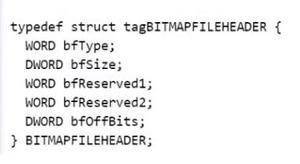利用python读取YUV文件 转RGB 8bit/10bit通用
注:本文所指的YUV均为YUV420中的I420格式(最常见的一种),其他格式不能用以下的代码。
位深为8bit时,每个像素占用1字节,对应文件指针的fp.read(1);
位深为10bit时,每个像素占用2字节,对应文件指针的fp.read(2);
然后使用 int.from_bytes() 方法将二进制转换为int型数字。
以下程序可以读8bit或10bit位深的YUV,需要指定从第几帧开始读、一共读多少帧。
它返回三个数组,其shape分别为:Y [frame,W,H] U [frame,W/2,H/2] V [frame,W/2,H/2]
当只读1帧时它返回:Y [W,H] U [W/2,H/2] V [W/2,H/2]
# -*- coding: utf-8 -*-
import math
from functools import partial
import numpy as np
import matplotlib.pyplot as plt
def readyuv420(filename, bitdepth, W, H, startframe, totalframe, show=False):
# 从第startframe(含)开始读(0-based),共读totalframe帧
uv_H = H // 2
uv_W = W // 2
if bitdepth == 8:
Y = np.zeros((totalframe, H, W), np.uint8)
U = np.zeros((totalframe, uv_H, uv_W), np.uint8)
V = np.zeros((totalframe, uv_H, uv_W), np.uint8)
elif bitdepth == 10:
Y = np.zeros((totalframe, H, W), np.uint16)
U = np.zeros((totalframe, uv_H, uv_W), np.uint16)
V = np.zeros((totalframe, uv_H, uv_W), np.uint16)
plt.ion()
bytes2num = partial(int.from_bytes, byteorder='little', signed=False)
bytesPerPixel = math.ceil(bitdepth / 8)
seekPixels = startframe * H * W * 3 // 2
fp = open(filename, 'rb')
fp.seek(bytesPerPixel * seekPixels)
for i in range(totalframe):
for m in range(H):
for n in range(W):
if bitdepth == 8:
pel = bytes2num(fp.read(1))
Y[i, m, n] = np.uint8(pel)
elif bitdepth == 10:
pel = bytes2num(fp.read(2))
Y[i, m, n] = np.uint16(pel)
for m in range(uv_H):
for n in range(uv_W):
if bitdepth == 8:
pel = bytes2num(fp.read(1))
U[i, m, n] = np.uint8(pel)
elif bitdepth == 10:
pel = bytes2num(fp.read(2))
U[i, m, n] = np.uint16(pel)
for m in range(uv_H):
for n in range(uv_W):
if bitdepth == 8:
pel = bytes2num(fp.read(1))
V[i, m, n] = np.uint8(pel)
elif bitdepth == 10:
pel = bytes2num(fp.read(2))
V[i, m, n] = np.uint16(pel)
if show:
print(i)
plt.subplot(131)
plt.imshow(Y[i, :, :], cmap='gray')
plt.subplot(132)
plt.imshow(U[i, :, :], cmap='gray')
plt.subplot(133)
plt.imshow(V[i, :, :], cmap='gray')
plt.show()
plt.pause(1)
#plt.pause(0.001)
if totalframe==1:
return Y[0], U[0], V[0]
else:
return Y,U,V
if __name__ == '__main__':
#y, u, v = readyuv420(r'F:\_commondata\video\176x144 qcif\football_qcif.yuv', 8, 176, 144, 1, 5, True)
y, u, v = readyuv420(r'F:\_commondata\video\1920x1080 B\RitualDance_1920x1080_60fps_10bit_420.yuv', 10, 1920, 1080, 0, 5, True)
print(y.shape,u.shape,v.shape)
以下程序将YUV转为RGB(只能读8bit位深的YUV),返回1个数组,其shape为: [frame,W,H,3]
# -*- coding: utf-8 -*-
import cv2
import numpy as np
import matplotlib.pyplot as plt
def yuv2rgb(yuvfilename, W, H, startframe, totalframe, show=False, out=False):
# 从第startframe(含)开始读(0-based),共读totalframe帧
arr = np.zeros((totalframe,H,W,3), np.uint8)
plt.ion()
with open(yuvfilename, 'rb') as fp:
seekPixels = startframe * H * W * 3 // 2
fp.seek(8 * seekPixels) #跳过前startframe帧
for i in range(totalframe):
print(i)
oneframe_I420 = np.zeros((H*3//2,W),np.uint8)
for j in range(H*3//2):
for k in range(W):
oneframe_I420[j,k] = int.from_bytes(fp.read(1), byteorder='little', signed=False)
oneframe_RGB = cv2.cvtColor(oneframe_I420,cv2.COLOR_YUV2RGB_I420)
if show:
plt.imshow(oneframe_RGB)
plt.show()
plt.pause(0.001)
if out:
outname = yuvfilename[:-4]+'_'+str(startframe+i)+'.png'
cv2.imwrite(outname,oneframe_RGB[:,:,::-1])
arr[i] = oneframe_RGB
return arr
if __name__ == '__main__':
video = yuv2rgb(r'D:\_workspace\akiyo_qcif.yuv', 176, 144, 0, 10, False, True)
用ffmpeg也可以,比如你需要将yuv的第8帧输出成一个png:
ffmpeg -s 176x144 -i akiyo_qcif.yuv -filter:v select="between(n\,8\,8)" out.png
以上这篇利用python读取YUV文件 转RGB 8bit/10bit通用就是小编分享给大家的全部内容了,希望能给大家一个参考,也希望大家多多支持。
以上是 利用python读取YUV文件 转RGB 8bit/10bit通用 的全部内容, 来源链接: utcz.com/z/353777.html






